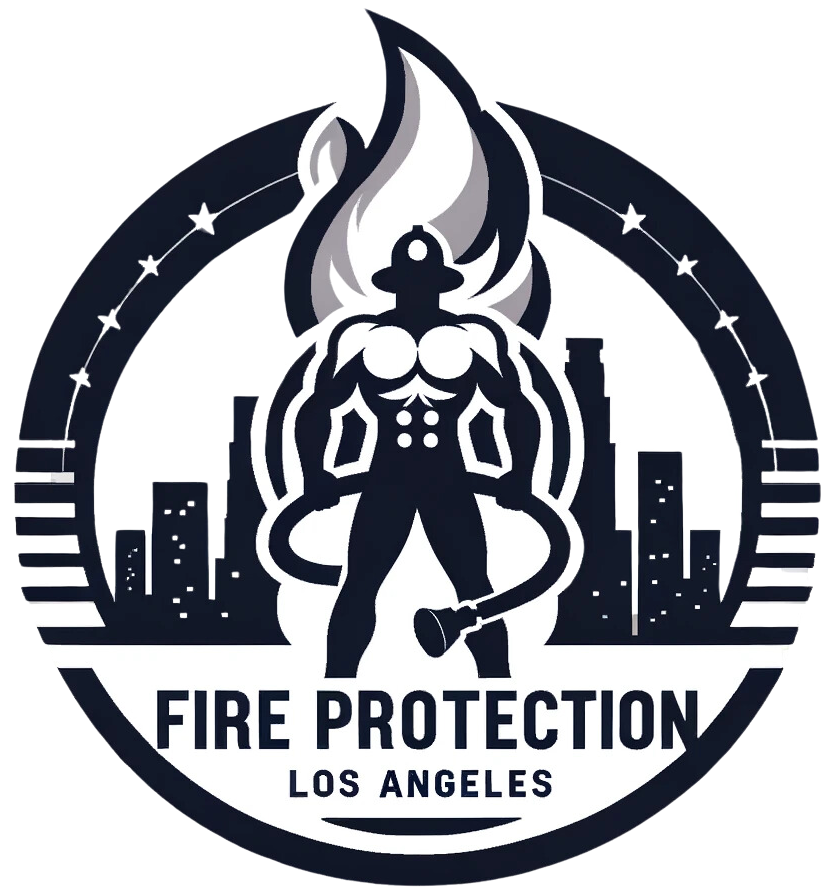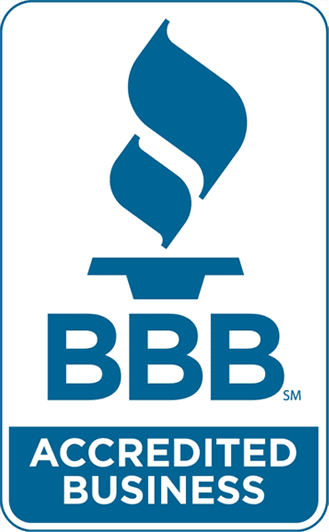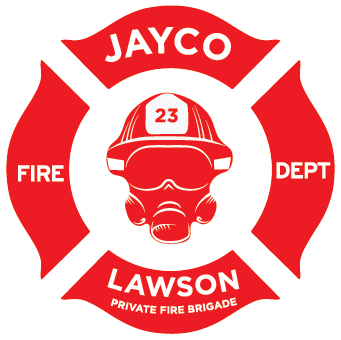When we choose reliable private firefighting providers, we need to focus on several key factors. First, we should verify their credentials and check for recognized certifications, like those from NFPA or ULC. Specialized training is also vital, as it equips technicians to handle unique fire safety challenges. Next, evaluating customer reviews helps us gauge their response time and professionalism. We should consider their service offerings and guarantee they match our community's needs. Finally, seeking recommendations from local sources can guide us to trustworthy providers. Understanding these aspects helps us make informed decisions that ultimately enhance our safety.
Understanding Private Firefighting Services
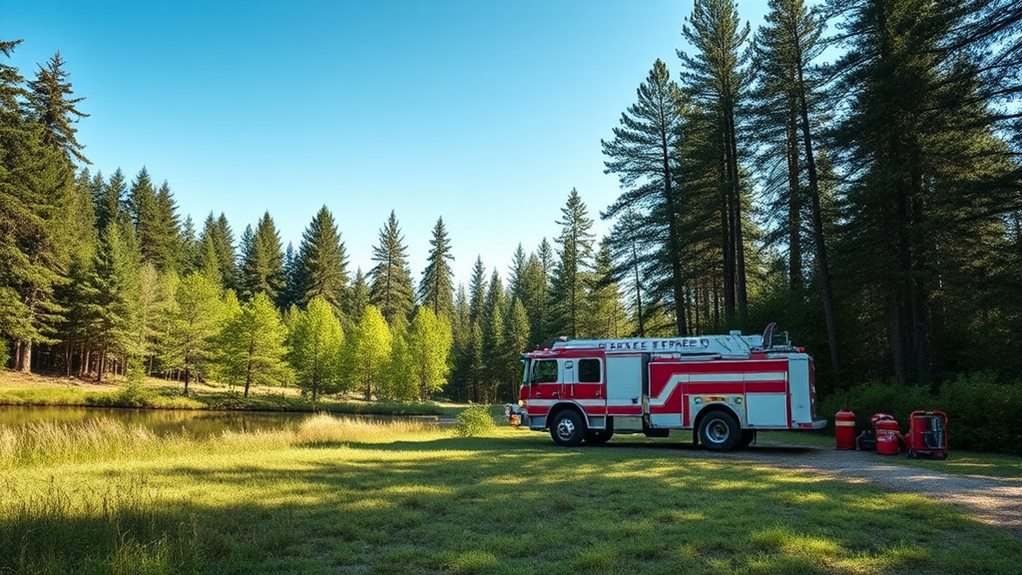
When we think about fire protection, many of us picture municipal fire departments rushing to the rescue. However, there's another important aspect of fire safety: private fire protection services. These companies, like Rural Metro Fire, often step in where public fire departments mightn't reach, especially in rural areas.
As urban expansion continues into wildfire-prone regions, the reliance on these services is growing due to their ability to provide enhanced safety measures. They typically operate on a subscription-based model, offering tailored solutions for the unique needs of communities.
Private fire protection services focus on specialized training that equips their personnel to handle industry-specific hazards. This means they're prepared for emergencies in various sectors, from agriculture to manufacturing.
To guarantee safety and effectiveness, compliance with OSHA regulations is mandatory for these companies. Many private firefighting providers also have a proven history of quality service, backed by certifications from recognized industry bodies. This enhances their credibility and reliability.
Evaluating Provider Credentials
When we look at private firefighting providers, it's crucial to check their credentials carefully.
We should verify their certifications from recognized organizations, as well as their experience in our specific industry, since these factors guarantee they meet safety standards.
It's also important to take into account their commitment to advanced fire suppression techniques, which indicates their capability in handling various fire scenarios effectively.
Additionally, reviewing the qualifications of their technicians and their insurance coverage can help us make a more informed decision about the right provider for our needs.
Certification and Training Standards
Certification and training standards are vital components in evaluating the credentials of private firefighting providers. When we consider hiring a firefighting service, we need to guarantee that their personnel are properly certified and trained. Certifications demonstrate skills in fire safety and emergency response, which is imperative for effective service delivery.
Here are four key points to keep in mind:
- Recognized Certifications: Look for certifications from organizations like ULC, CFAA, TC, CASA, NAFED, and NFPA, as these show compliance with fire safety regulations.
- Specialized Training: Confirm that technicians have undergone specialized training to handle specific fire safety challenges, which is often required by regions, as continuous training keeps professionals updated on the latest fire safety technologies enhancing response effectiveness.
- Manufacturer Certifications: Check if the provider has certification from manufacturers, which proves they meet the necessary standards for specific fire protection systems.
- Ongoing Education: It's essential that technicians participate in ongoing training to stay updated on industry standards, guaranteeing they can address evolving fire safety requirements.
Industry Experience and Expertise
Experience and expertise play an important role in selecting a reliable private firefighting provider. When we're looking at fire services, we should trust companies with a proven history of delivering quality services, as this often reflects their established reputation.
For instance, companies that offer comprehensive fire protection services typically have a wider range of solutions, enhancing their reliability in various scenarios. It's essential to check for certifications from recognized organizations like ULC, CFAA, TC, CASA, NAFED, and NFPA. These certifications guarantee that the provider adheres to the necessary quality standards set by regulatory bodies.
We also need to verify that the technicians have a solid understanding of existing fire systems, as this knowledge is important for effective fire safety and compliance management. Experienced technicians are typically better equipped to tackle complex fire safety challenges, which is critical for maintaining safety in specialized environments.
Furthermore, we should look for providers committed to continuous training and staying updated on industry standards. This dedication guarantees they remain knowledgeable and compliant with evolving fire safety regulations.
Insurance and Liability Coverage
Selecting a reliable private firefighting provider goes beyond just evaluating their experience and expertise; we also need to contemplate their insurance and liability coverage. This aspect is essential for guaranteeing that both we and the provider are protected in case of unexpected events.
Here are four key insurance types we should look for:
- General Liability Insurance: This protects against claims related to property damage or personal injury during operations.
- Professional Liability Insurance: This covers errors or omissions in their fire protection services that could lead to financial losses for us.
- Workers' Compensation Coverage: This guarantees that the provider's employees are protected in case of work-related injuries, which reduces our liability risks.
- Compliance with State Regulations: We must confirm that their insurance meets or exceeds state regulations, guaranteeing legitimacy and protection against potential lawsuits.
We should also request documentation of coverage limits and policy details to assess whether the provider's insurance adequately protects against the specific risks associated with our property and industry.
Importance of Specialized Training
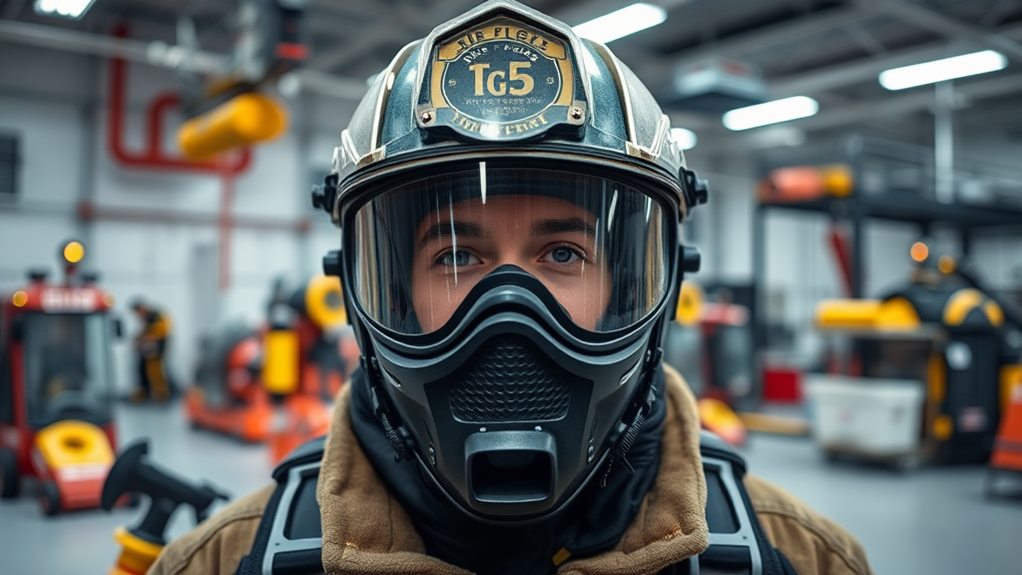
When we think about private firefighting providers, it's clear that specialized training is essential for handling specific hazards, like hazardous materials and unique fire scenarios.
These companies often invest in thorough training programs, ensuring their staff are familiar with the latest safety regulations and techniques.
Specialized Training Requirements
Specialized training is essential for private firefighting providers, as it equips their personnel to tackle unique hazards specific to various industries. This training guarantees that firefighters can effectively manage emergencies that may arise in specialized environments.
Here are four key reasons why specialized training is critical for private companies in this field:
- Industry-Specific Hazards: Firefighters must understand the particular risks associated with different industries, from chemical plants to construction sites.
- OSHA Compliance: Adhering to OSHA regulations is fundamental. This training helps reduce injury risks and enhances overall operational efficiency.
- Certifications: Specialized training often includes certifications in areas like hazardous materials (HazMat), fire systems maintenance, and emergency medical response, tailored to the industry's needs.
- Ongoing Education: Continuous training and updates on industry standards are necessary for private firefighting providers to maintain quality service and adapt to changing safety regulations.
Industry-Specific Expertise
In industries where unique hazards abound, having industry-specific expertise is vital for private firefighting providers. When we think about private fire departments, we recognize that specialized training allows firefighters to effectively handle risks specific to environments like manufacturing plants or restaurants. This training guarantees compliance with safety regulations and standards.
Providers with expertise in areas such as HazMat operations are better equipped to manage emergencies that may arise in those settings. For example, companies like Rural Metro Fire offer tailored fire protection services that address the distinct challenges found in unincorporated areas. Their personnel have certifications from recognized bodies like NFPA and NAFED, validating their training and ability to conduct inspections and fire suppression services in line with industry standards.
Moreover, ongoing training is essential for private firefighting companies to stay up-to-date on regulations and best practices. This continuous education helps maintain their expertise and guarantees they can provide reliable services in complex fire safety situations.
Assessing Customer Reviews
Customer reviews play an essential role in our assessment of private firefighting providers. By examining these reviews, we can better understand how these companies compare to traditional fire departments and other public services.
Here are four key points to take into account:
- Look for Patterns: Consistent mentions of timely response, professionalism, and effectiveness in emergencies can indicate a provider's overall capability.
- Balance Positive and Negative Feedback: Both types of reviews highlight strengths and weaknesses, helping us make informed decisions.
- Check Review Volume: A high number of reviews might suggest an established provider, while fewer reviews could indicate limited experience or a newer company.
- Cross-Reference Claims: Verify the information in reviews by checking other sources, like industry certifications and professional affiliations, to ascertain the provider meets necessary standards.
Analyzing Service Offerings
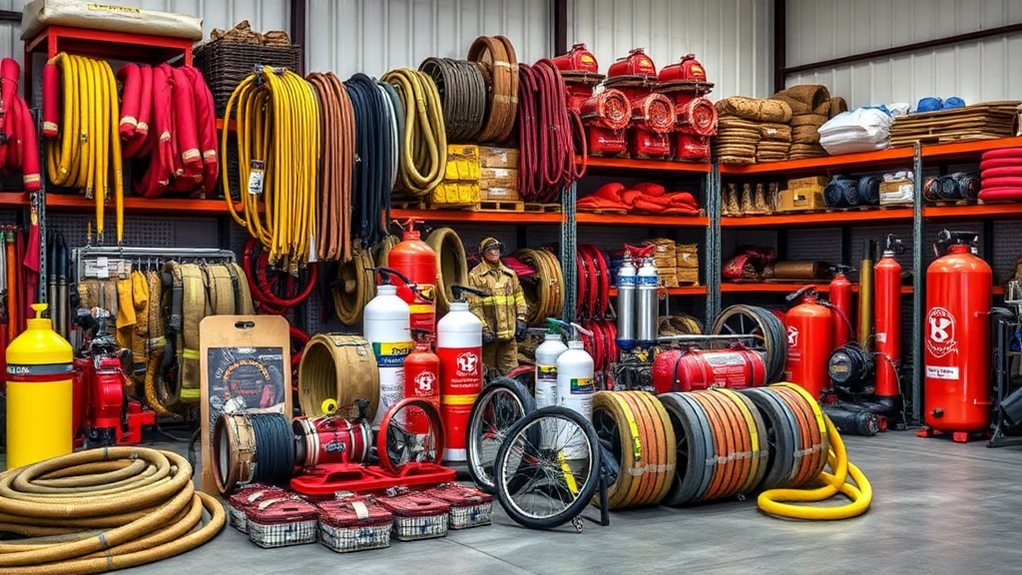
Evaluating the service offerings of private firefighting providers helps us determine which company best meets our specific needs. Private firefighting companies offer customizable safety services, including fire prevention and suppression, emergency medical services, and fire inspection services. This flexibility allows us to choose the right mix of services based on our community's unique requirements.
In industrial settings, specialized fire protection services are essential. They help mitigate unique fire hazards and guarantee compliance with industry regulations. When we look for providers, we should consider those that employ trained professionals who can navigate complex fire safety challenges.
Established companies often provide standard warranties and 24-hour emergency services, which add to their reliability. It's also important to check if their technicians hold necessary certifications from organizations like NFPA and ULC. This guarantees they follow regulatory standards and provide quality service.
Comparing Pricing Structures
Many factors impact the pricing structures of private firefighting services, and understanding these can help us make informed decisions. When we evaluate costs, we should consider various elements that can greatly influence our budget.
Here are four key factors to keep in mind:
- Size and Complexity: Larger, more complex buildings often result in higher service costs due to the extensive resources required.
- Hazard Ratings: Sites with higher risk levels necessitate more thorough fire protection measures, which can increase expenses.
- Building Age: Older structures might've outdated systems that complicate maintenance and inspections, leading to higher costs.
- Type of Work Required: The frequency of inspections affects pricing; for example, monthly checks generally cost more than annual ones.
As we explore different private firefighting services, let's remember that opting for low-budget options might save money initially, but could lead to greater long-term expenses due to deferred maintenance or compliance issues.
Seeking Community Recommendations
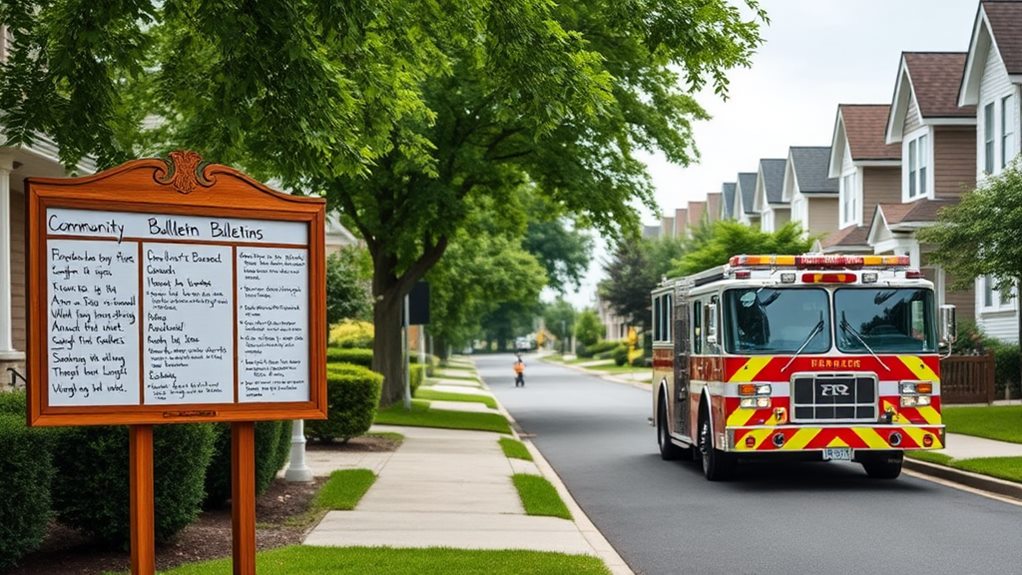
When it comes to finding reliable private firefighting providers, community recommendations can be invaluable. We should start by talking to our neighbors and engaging with local community groups, as word-of-mouth insights can reveal which private services are trustworthy and effective.
Many times, these discussions can happen on social media or during local meetups, where personal experiences can guide our choices. It's also wise to check the reviews and credentials of any recommended companies.
We need to verify that they've a proven track record in fire protection and emergency response. Our local fire department is another great resource; they often know reputable private firefighting companies and can direct us to trusted providers in our area.
Moreover, if we're in specialized industries that require specific fire safety measures, seeking recommendations from industry peers can lead us to experienced and compliant firefighting services.
Final Thoughts
In summary, choosing a reliable private firefighting provider is essential for safety and peace of mind. Did you know that wildfires can spread at a rate of up to 14 miles per hour? This highlights the importance of having trained professionals ready to respond quickly. By evaluating credentials, reviewing customer feedback, and comparing services, we can make informed choices. Let's work together to guarantee our communities are protected by the best firefighting services available.
